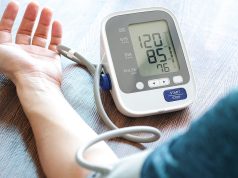Use of Imaging to Assess Stroke Down in Early COVID-19 Epoch
Daily counts of patients who underwent imaging dropped from prepandemic to early-pandemic period
Hydroxychloroquine No Aid for COVID-Related Mortality
Hydroxychloroquine alone or with azithromycin associated with abnormal electrocardiogram findings
Osteoporotic Fracture Risk Lower for DOAC Than Warfarin in A-Fib
No differences seen in fracture risk in head-to-head comparisons of direct oral anticoagulants
Intensive Blood Pressure Control Tied to Lower Atrial Fibrillation Risk
Lowering systolic BP to <120 mm Hg lowers risk by 26 percent
T2DM Linked to Worse Cognitive Performance After Stroke
No significant difference found in cognitive function for those with impaired, normal fasting glucose levels
Guidance Issued for Acute Large Vessel CVA During COVID-19 Pandemic
Recommendations relate to prehospital care, pre-, intra-, postthrombectomy care
High Career Satisfaction Reported by Many Thoracic Surgeons
But 55.7 percent of cardiothoracic surgeons who responded report symptoms of burnout or depression
COVID-19 Fatality Rate High for Heart Transplant Recipients
Of 28 infected HT recipients, 79 percent admitted for treatment, 25 percent needed mechanical ventilation
Kawasaki-Like Disease Incidence Up After Start of SARS-CoV-2
Children diagnosed after start of SARS-CoV-2 were older, had higher rate of cardiac involvement
Deceased Donor Transplantation Has Dropped Since COVID-19
Overall drop seen in deceased donor transplant in France, United States mainly driven by kidney transplant



















